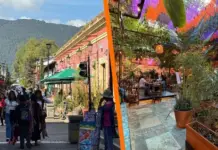Agents from the Attorney General’s Office (FGR) and the National Guard arrested a man in Chiapas for illegally transporting 3,445 sea turtles. The individual was transporting the turtles in cardboard boxes, located in the trunk and cargo hold of a bus bound for San Cristóbal de las Casas. The operation took place at a checkpoint set up before the bus reached the city, where a vehicle inspection revealed two boxes containing the turtles.
The detainee did not have the required documentation for transporting these species and was therefore turned over to the appropriate authorities. Authorities also reported that the turtles were taken to a specialized sanctuary to receive the necessary care. Most of the turtles were unharmed; however, they will undergo rehabilitation before being released back into their natural habitat.
The arrested individual has been formally charged and will remain in custody at CERESO 14 prison in Cintalapa, Chiapas, while the investigation continues. Authorities will continue their investigation to identify more individuals responsible for this case. They also announced new operations in the region.
The turtles were captured during nesting and egg-laying season in the coastal area of the state, where these species are endangered.
In Mexico, illegal wildlife trafficking is classified as a serious crime under the Federal Penal Code. Article 420 establishes that those who capture, possess, transport, stockpile, introduce, or extract protected, endemic, or endangered species of wild flora or fauna may face prison sentences of one to nine years, as well as fines of 300 to 3,000 days’ wages. These penalties are increased if the activities affect protected natural areas or are carried out for commercial purposes.
In addition to existing legislation, a proposal is also being considered to impose prison sentences of six months to three years and fines of 200 to 1,000 times the daily minimum wage for the sale of wild or domestic species online.
These measures aim to curb both the physical trafficking and unregulated digital sale of specimens, in response to the growing impact these practices have on national biodiversity.
These activities continue despite the large number of associations and civil organizations that seek to protect nature, and specifically this type of turtle (Trachemys Venusta).

Source: infobae




